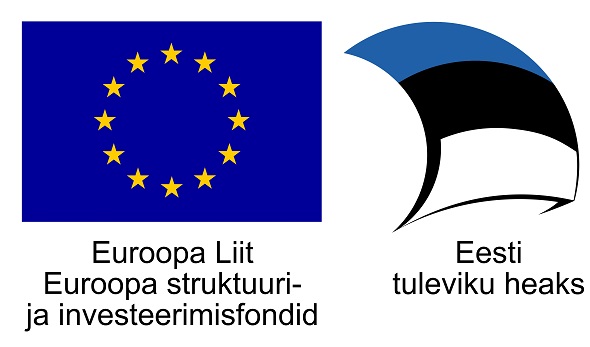Creative Ports
Creative Ports project is funded by the European Union (European Regional Development Fund) and the project strives to foster growth and employment in the cultural and creative industries (CCI) of the Baltic Sea Region (BSR) by enhancing the internationalisation of support organisations and enterprises.
Cultural and creative industries (CCI) play an important role for intelligent and sustainable growth in the Baltic Sea Region (BSR) but until now they do not realise their full growth potential. Therefore a consortium of 14 partners under the lead of the German Goethe-Institute submitted in spring 2018 the application “Creative Ports” within the BSR Interreg Programme in order to foster growth and employment in the CCI sector of the BSR by enhancing the internationalisation of support organisations and enterprises. The “Creative Ports” application has been approved on 20.09.2018 by the Monitoring Committee of Interreg Baltic Sea Region. Loov Eesti is project partner of “Creative Ports” together with TalTech and Tallinn Business Incubators and Tallinn City Government as associated organisation.
Creative Estonia is responsible for developing learning modules on internationalisation tools
Timeframe
7/19-09/21
Description
The piloting of the internationalisation tools is closely observed and documented in order to develop learning content from the applied tools. For achieving this, already in the exchange phase of the good practices (GoA3.1) the tools are presented in a structured way and the responsible partners 5,6,7 (with support of the external service providers contracted to technically produce the learning modules) keep an eye on the transferability and potential for generalising lessons learnt from the tools. Once the partners have selected the tools which they will pilot (GoA3.2), the partners 5,6,7 work out a structure/frame and set up plans how to develop learning modules together with the WP leader and the piloting partners. This includes analysing the target group preferences and needs, setting the learning objectives and deciding on a didactic concept. However, for transferability and applicability reasons, the learning modules will focus on practical key points and consist of several small units rather than an extensive curriculum. The production of the learning content is organised on-site (e.g. by visiting the implementing/piloting partners and making videos and interviews with end-users) and remotely (e.g. by producing info-graphics or programming interactive graphics/teaser games for the learning modules). The partners will also coordinate with PP13 who oversees the production of the catalogue of internationalisation tools which feeds into the learning modules.
The learning modules will be about tools from the three different strands of internationalisation tools addressed at CCI support organisations and public authorities working with the CCI sectors:
- support activities for international fairs/exhibitions/international market access/festivals + networking events
- internationalisation capacity building programmes for CCI companies
- opening of existing programmes
Moreover, stories and lessons learnt from the staff exchange among CCI support organisations are elaborated for use in the learning modules.
The learning modules include the most relevant guidance, lessons learnt and evaluations of the piloted tools, e.g. “why was it so difficult to mobilise the local CCI businesses in the tool XY and how to best overcome this?”, “how to develop and set-up the internationalisation tool XY and how to best convince and make fit your CCI support organisation for it?”, “how to best prepare and implement the capacity building on internationalisation for CCI”.
User feedback with be collected with an online questionnaire.
Output
Learning modules about piloted CCI internationalisation tools
Output Date
09/21
Output description
Learning modules about piloted CCI internationalisation tools are produced as intermediary output that feed into the online learning platform. It is to be decided which format and content the modules exactly will have. This depends on the piloted tools which are selected during the first two reporting periods. Potentially it will be video tutorials that are integrated into the learning platform (GoA4.2), potentially it might also be interactive step-by-step guidance including a short introduction for local specifics or the respective CCI subsector.
A close cooperation with the produced catalogue of internationalisation tools (main output 3.2) is necessary to take up the essentials of the piloted tools such as the general description and idea of the tool, description of the regional context in which it is piloted during the Creative Ports project, the application and processes (e.g. how were CCI companies mobilised, how was the tool implemented…) as well as the evaluation results, lessons learnt, barriers/hindrances, voices from the end-users.
Currently it is planned to have approximately ten learning modules about internationalisation tools divided to the three different strands of tools.
The target group of these modules in the Online Platform are CCI intermediaries and especially CCI support organisations in the BSR who should also apply and test the internationalisation tools.
Total budget: 3,079,797.09 €, 142996 of the budget is for Creative Estonia






